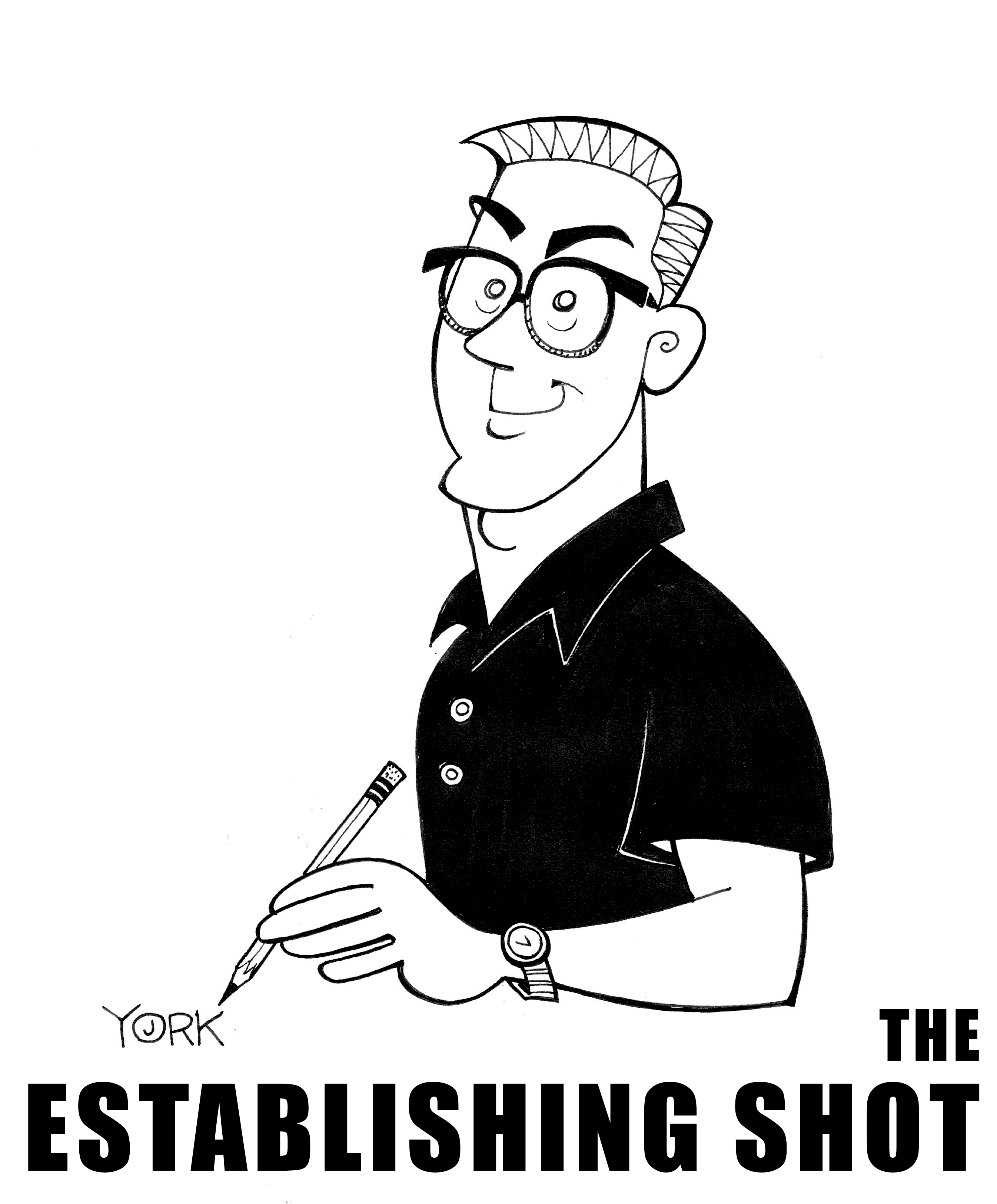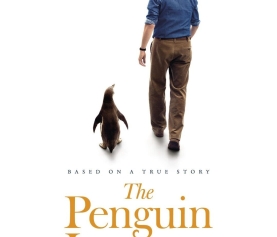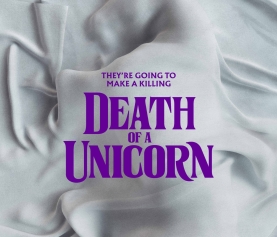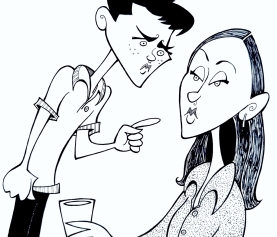
Original caricature by Jeff York of the cast of THE TRIAL OF THE CHICAGO SEVEN. (copyright 2020)
A vindictive POTUS wants to be a “law and order” president and uses his Attorney General to go after protestors. An anachronistic justice system doesn’t work equally for a black man. And the whole world is watching as American citizens are inexplicably incarcerated for merely disagreeing with their government. A story about the USA in the year 2020? Nope, it’s about our nation fifty years ago as dramatized in the stirring new courtroom drama THE TRIAL OF THE CHICAGO 7, in theaters now and premiering on Netflix October 16. The film not only plays as an ironic commentary for our current turbulent times, but it is an exciting work showcasing citizens who stood up for what they believed in, even if it meant risking their lives or jail time. (The least we can do is vote this November, right?)
Aaron Sorkin wrote and directed this new dramatization about the trial of the famed protestors who disrupted the Democratic Convention in the Chicago summer of ’68. Originally, eight defendants were singled out to face various charges, including crossing state lines to incite a riot. The rioting was actually started by Mayor Richard Daley’s overzealous police force, but once inaugurated, President Richard Nixon chose to make an example of these angry youths with a trumped-up trial to show he was a strong disciplinarian.
Moments into the film, Nixon’s AG John Mitchell (John Doman) lays down the ground rules for Chicago federal DA Richard Schultz (Joseph Gordon-Levitt), a smart man reluctant to head up this show trial. The way Mitchell exudes gleeful viciousness could give Bill Barr a run for his money. We’re also introduced to the defendants in the upcoming trial as well:
All-American ringleader Tom Hayden (Eddie Redmayne) who wants better governance.
His egghead friend Rennie Davis (Alex Sharp), coming from a similar place.
Hippie Abbie Hoffman (Sacha Baron Cohen), a counterculture prankster and agitator.
Jerry Rubin (Jeremy Strong), Abbie’s equally anti-establishment friend and skirt chaser.
David Dellinger (John Carroll Lynch), a pacifist protesting war since the ’40s.
John Froines (Danny Flaherty), a college activist fighting the war and draft.
Lee Weiner (Noah Robbins), another college activist with similar motivations.
Black Panther leader Bobby Seale (Yahya Abdul-Mateen), a radical who joined the protests as a sign of solidarity.
Seale is the outlier, a man who barely participated in the events that led to the arrests. He’s picked upon due to his affiliation with the Panthers, a group that the conservative Nixon despises. The trial starts with the famed civil rights attorney William Kunstler (Mark Rylance) for the defense, with Seale loudly protesting that his lawyer was not able to be present, leaving him without the proper council. The fact that Seale was included in the circus was utter baloney, as was the assignment of archly conservative judge Julius Hoffman (Frank Langella) to preside over the case. Thus, the stage was set for fireworks and the film dramatizes the many outrages that ensued, some hilarious, some devastating.
As good as Sorkin is in the courtroom – you’ll remember his first big hit was A FEW GOOD MEN – he could’ve even given us more here. The film clocks in at just two hours and nine minutes, but the length, brutality, and shenanigans of the trail could’ve easily warranted a three-hour film or even a TV-miniseries. Sorkin hits the major points however with relish, wisely dwelling on Kunstler’s verbal theatrics, Abbie Hoffman’s humorous outbursts, and most vividly, the rage of Seale for being stuck in that courtroom without proper representation. At one point, upon discovery that numerous undercover cops infiltrated the protestors’ groups to spy on them, one of the defendants blithely remarks, “Do you think it’s possible that there were seven demonstrators in Chicago last summer leading 10,000 undercover cops in protest?” It’s a cheeky line, as sure a Sorkin-styler zinger as we’d expect, and indeed, such dialogue gives the film it’s snappiest crackle and pop.
The most affecting drama in the film comes with the fate of Seale’s character. He was treated shabbily throughout by Judge Hoffman, barely containing his contempt for the young African-American. Seeing how far the judge goes to contain Seale is truly terrifying. The judge’s racism is utterly demeaning, and one cannot help but draw a straight line between his courtroom to the horrendous victimization of George Floyd, Breonna Taylor, and so many others this past year by a justice system that has learned far too little in fifty years.
As a filmmaker, Sorkin could stand to move his camera around more. It’s a missed opportunity when you’ve hired cinematographer Phedon Papamichael, who brought FORD V. FERRARI to such energetic life last season. Sorkin uses his editor Alan Baumgarten to greater effect, cutting with brio while mixing in numerous flashbacks and the cross-cutting of events. Where Sorkin shines best as a director is in his work with actors. The entire ensemble is outstanding, surely a contender for SAG’s ensemble award. Sorkin gives a lot of name players quality time to shine throughout, from star Redmayne to Michael Keaton in a key featured role.
Sacha Baron Cohen has been associated with this project for years and he’s both funny and grave, giving one of the film’s standout performances. Mark Rylance also excels as the crusty Kunstler, never overdoing the lawyer’s legendary bombast, but always showing us the shrewd attorney underneath the wild hair. Gordon-Levitt makes Schultz’s decency a virtue as the opponent character, as does John Carroll Lynch as the upright family man Dellinger. (Hard to believe it’s the same actor who chilled us to the bone playing both the Zodiac killer and Twisty the Clown!) Still, as good as they all are here, the two likely to figure in awards contention are Abdul-Mateen as the seething Seale and Langella as the wily prick of a judge. They make their characters’ anger utterly palpable and the film reaches its zenith during their battles.
A few characters get short-shrift (Froines and Weiner), and some very key moments from the trial are surprisingly left out. Abbie Hoffman made oodles of comments, getting the judge’s goat repeatedly, and the script doesn’t contain nearly enough of them. The same with the many battles between Kunstler and the judge. (The attorney drew enough contempt charges to make up for four trials.) Truly, this material could have yielded a television miniseries.
It’s great to see such a film as THE TRIAL OF THE CHICAGO 7 after such a bereft movie year, light on significance and weight. This is an inherently great story, well-told by Sorkin, and acted fantastically across the board. And what it has to say about justice, the fragility of our democracy, and the abuses by those running this nation couldn’t be timelier. Or more frightening. The film just needed to be longer to scare the hell out of us even more.







